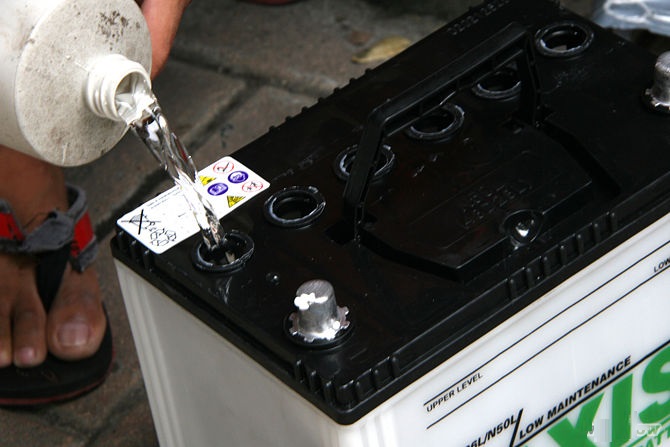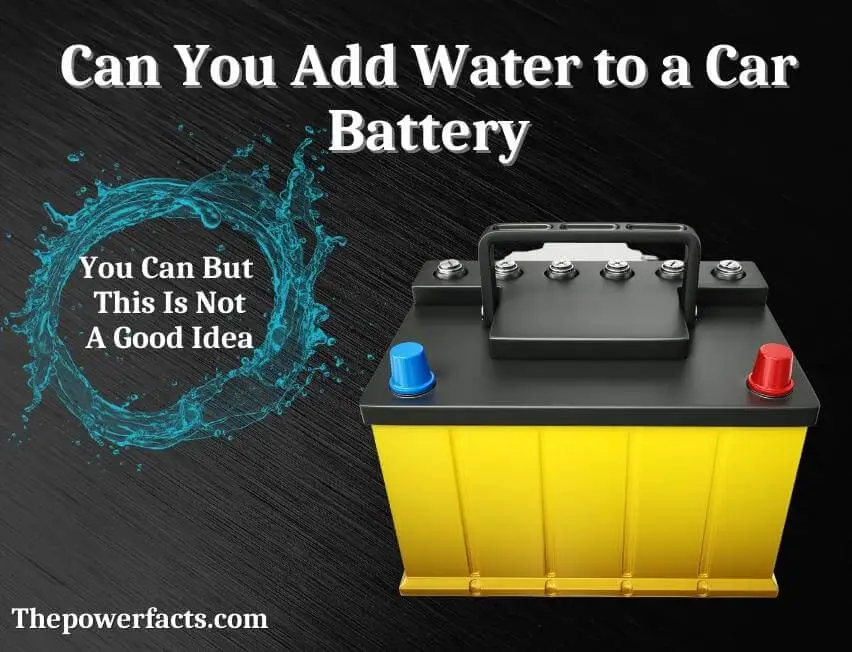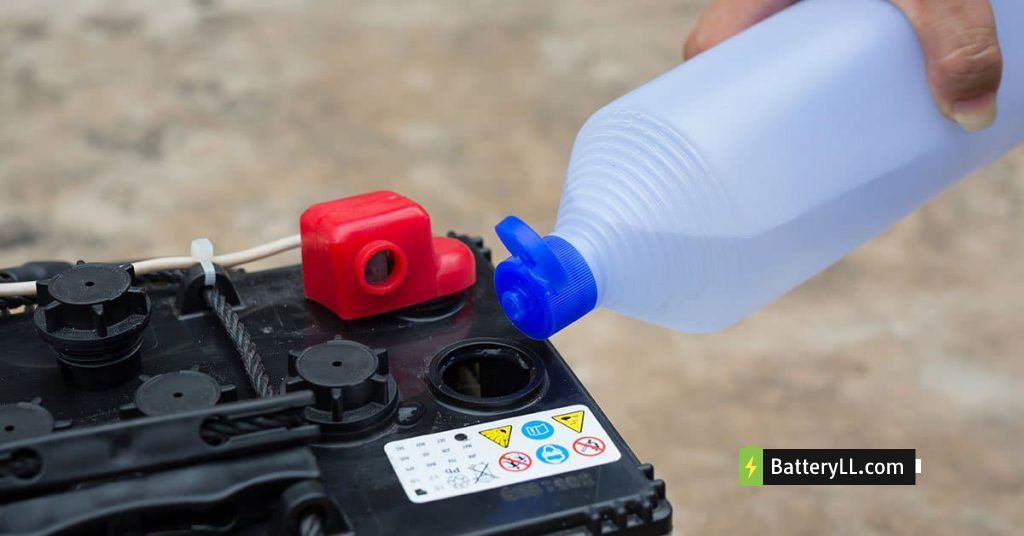How To Add Water To A Car Battery

Maintaining a car battery often involves more than just ensuring it's charged. One crucial aspect is checking and replenishing the water level, a task that can significantly extend the life of your battery and prevent potential failures.
Understanding how to properly add water to a car battery is essential for vehicle owners. Neglecting this maintenance step can lead to sulfation, reduced capacity, and ultimately, premature battery replacement.
Identifying the Battery Type
Before adding water, determine if you have a flooded lead-acid battery. Sealed Maintenance-Free (SMF) batteries or Absorbent Glass Mat (AGM) batteries typically do not require water addition. Attempting to open a sealed battery can be dangerous and is generally not recommended.
Flooded batteries usually have removable caps on top, allowing access to the cells. Consult your vehicle's owner's manual or the battery's label for specific instructions and warnings.
Safety Precautions
Working with car batteries involves potential hazards. Always wear safety glasses and gloves to protect yourself from acid splashes. Battery acid is corrosive and can cause serious burns.
Ensure the area is well-ventilated to avoid inhaling fumes. Avoid smoking or using open flames near the battery, as it can produce flammable hydrogen gas.
Gathering the Necessary Materials
You'll need distilled water, a small funnel, and a clean cloth or paper towels. Distilled water is crucial because it lacks minerals that can contaminate the battery's electrolyte solution.
Tap water should never be used, as it contains minerals that can reduce battery performance and lifespan. Ensure the funnel is clean to prevent introducing contaminants into the battery cells.
Step-by-Step Instructions for Adding Water
First, turn off the engine and ensure the vehicle is parked on a level surface. Locate the battery, which is typically under the hood, but sometimes found in the trunk or under a seat.
Inspecting the Battery
Visually inspect the battery for any signs of damage, such as cracks or leaks. Clean any corrosion around the terminals with a baking soda and water solution before proceeding.
Removing the Vent Caps
Carefully remove the vent caps from the top of the battery. Most batteries have six caps, one for each cell. Use a flathead screwdriver if needed to gently pry them open.
Checking the Electrolyte Level
Look inside each cell to check the electrolyte level. The plates inside should be submerged. If the electrolyte is below the plates, it's time to add water.
Adding Distilled Water
Using the funnel, carefully add distilled water to each cell until the electrolyte level reaches the bottom of the fill ring, if present, or about 1/4 to 1/2 inch above the plates. Avoid overfilling the cells, as this can cause acid to spill during charging.
Replacing the Vent Caps
Once you've added water to all the cells, securely replace the vent caps. Wipe up any spills with a clean cloth or paper towels.
Cleaning and Maintenance
After adding water, it's a good practice to clean the battery terminals. Use a wire brush and a solution of baking soda and water to remove any corrosion. Rinse with water and dry thoroughly.
Apply a thin coat of petroleum jelly to the terminals to prevent future corrosion. Regularly inspect the battery and electrolyte levels to ensure proper maintenance.
Frequency of Water Addition
The frequency of adding water depends on several factors, including climate, driving conditions, and battery age. In hotter climates or with frequent heavy use, the water may evaporate more quickly.
Check the electrolyte levels at least every three months, or more frequently if you notice signs of reduced battery performance. Regular maintenance can significantly extend the life of your car battery.
Potential Problems and Solutions
Overfilling the battery can cause acid spillage, which can damage surrounding components. If you overfill, use a turkey baster or similar tool to remove the excess electrolyte.
If the battery is consistently losing water, it could indicate a problem with the charging system or the battery itself. Consult a qualified mechanic for further diagnosis and repair.
The Environmental Impact
Proper battery maintenance not only saves you money but also reduces environmental impact. By extending the life of your battery, you reduce the need for frequent replacements, which require energy and resources to manufacture.
Always dispose of old batteries responsibly at designated recycling centers. Car batteries contain hazardous materials that can contaminate the environment if not handled properly.
Conclusion
Adding water to a car battery is a simple yet crucial maintenance task that can significantly extend its lifespan and ensure reliable vehicle performance. By following these guidelines and taking necessary safety precautions, you can keep your battery in optimal condition and avoid unexpected breakdowns. Remember, a well-maintained battery contributes to a smoother, more reliable driving experience.


















